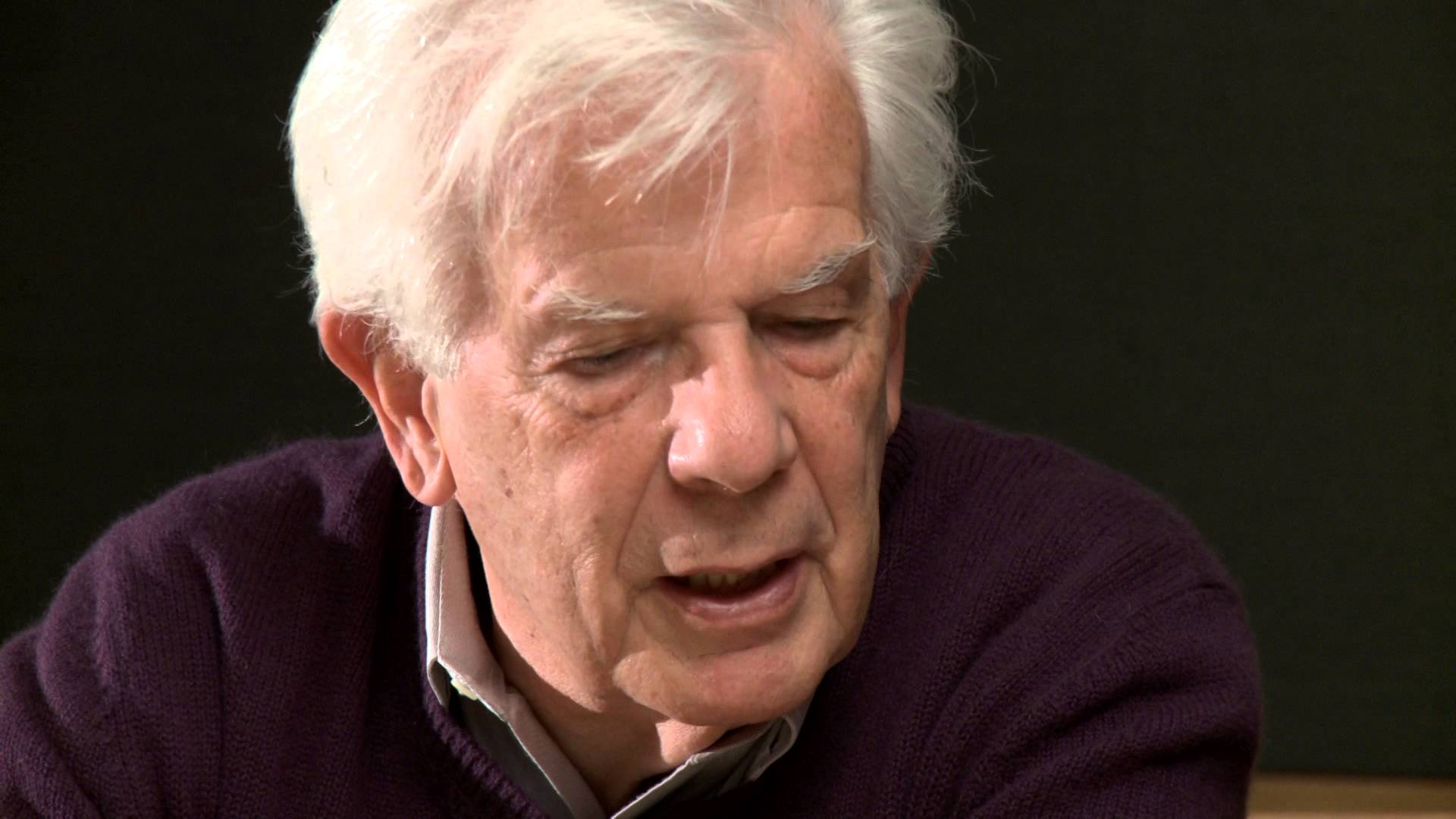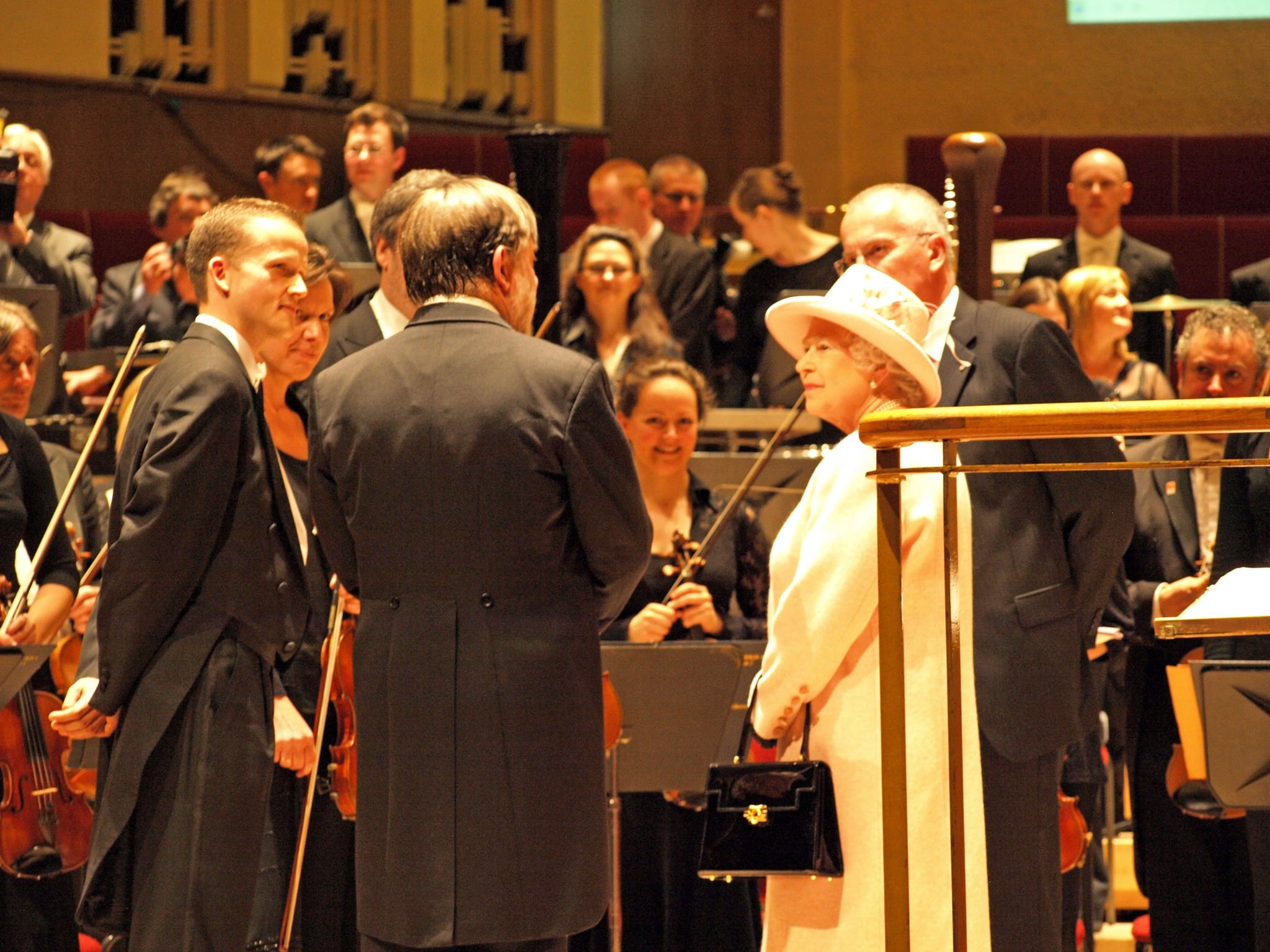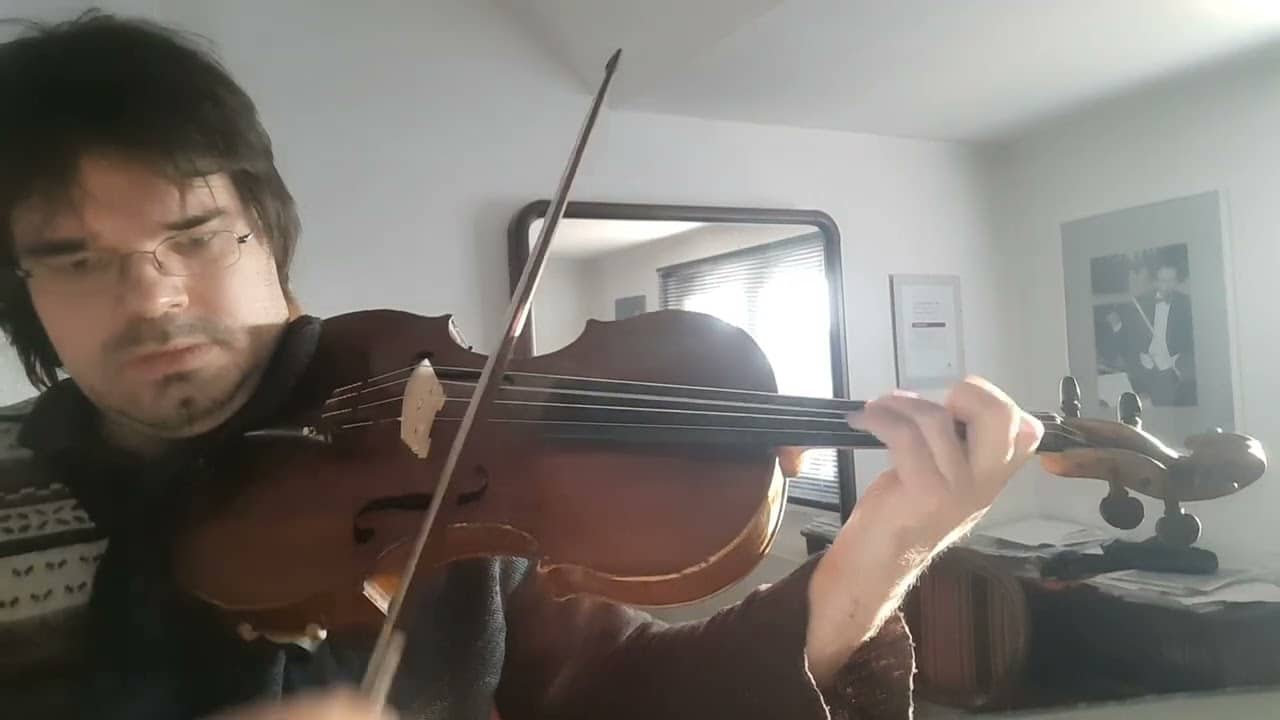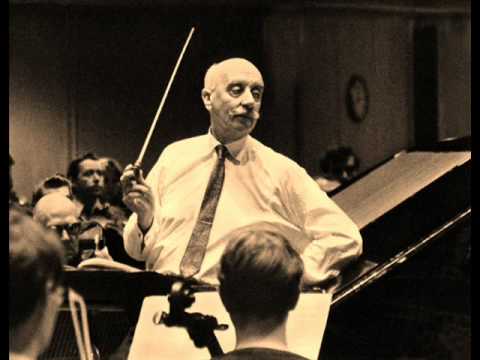Just in: Christoph von Dohnanyi quits Salome in row over Regie
mainThe veteran maestro has walked out of Berlin’s Salome over ‘differences’ with the director Hans Neuenfels.
Dohnanyi, 88, who took over the show from the surgically-sidelined Zubin Mehta, told the theatre that his young sidekick, Thomas Guggeis, could take his place.
Guggeis is Daniel Barenboim’s assistant.






Why am I not surprised?
Until it is irrevocably clear that the conductor must always have the final say about whether what is supposed to happen on stage also makes musical sense, we will continue to read about the frustrations that lead to such walk-outs. I have no problem with new insights or new slants on well-worn themes, but the trouble is that most directors are both musically and artistically illiterate. In the bedchamber scene in the Royal Opera’s recent “Otello” we had Jonas Kaufmann entering dressed in a kimono and brandishing a Samurai sword. Desdemona was reclining on a bed straight from Habitat. Did nobody seek to question whether this was remotely what a Venetian bechamber looked like, not even the conductor Antonio Pappano who should have known better?
LOL – brilliant parody of the witless literalism and knee-jerk conservatism of so many head-in-the-score musicians, so wrapped up in the self-importance of their own art that they forget it is only one component of opera. You’ve got the tone spot on – chapeau!
“head-in-the-score musicians, so wrapped up in the self-importance of their own art”
Self-importance? Really?
We all know where directors’ heads seem to spend most of their time.
Haha, nobody would go to the opera for those libretti only. The opera as art form still exists, because of the music, obviously.
This is ridiculous. Opera is a living breathing art form that needs people who understand the art form, music and life and manage to tell a story that still touches us. Showing the lavish, romanticized past that truly never existed, does us no good. If we let singers and conductors roam who have no feeling for the stage or story, opera might as well be dead.
You are wrong. The only reason opera is not dead, is because of the music.
Go stage opera libretti – without the music – in your desired comprehensiveness, and tell us how it went. LMAO.
Conductors nor directors have a final say about what happens, that is usually the intendant’s prerogative. Conductors and directors should be able to communicate to begin with.
Way to go! If only more conductors did that, the opera world would be a better place.
+1
Well, not really. Walking out like that just lets down all the people who wanted to hear the music in Dohnányi’s hands. And it’s not as if there is anything surprising about Neuenfels’ work at this point; CvD should have known what he was committing to.
Agreed!
I applaud Maestro Dohnanyi for standing up for principles. Nothing wrong with new staging ideas if they are in the spirit of the piece and don’t say the exact opposite of what the piece says. The latter is something we see way too often. It comes from the deep-seated skepsis many people feel: Romanticism can’t exist, great feelings can’t exist, we have to shoot ithem all down, and make ithem appear absurd or anachronistic. But ithey are neither.
It was about time that someone of Dohnanyi’s stature sent a clear message that enough is enough.
Really?
Another alternative is for the conductor to be director as well. Karajan did this.
Yeah, Gergiev directed his own Ring Cycle too. That went well…
Well, most people go to a Ring for the music anyway. Secondary problem if Gergiev’s staging worked well or not.
How many times have I looked bewildered from the stage to the conductor for help, after some crazy director has asked me to do something that has nothing to do with the story or music of the piece we are working on, only to see them look the other way as if to say it’s not my problem.
It always bewilders me how opera intendants assign productions to director A and conductor B without even wondering if the two have even the smallest common idea about the work. Great opera comes about when music becomes theatre and theatre becomes music. It demands a certain attitude, of respect and humility, which is not the same as slavishly following every set indication in the libretto. It certainly demands the setting aside of egos, which seems to me the heart of the problem.
Very well stated. It is a collaborative effort, after all.
Dohnanyi has always had strong opinions and belief in respect to the music. Did not someone, somewhere in this process think this might not be the right match? Imagine putting Calixto Bieto and Riccardo Muti together!
Any director who, as Neuenfels did, cuts the final act of Enescu’s Oedipe (Frankfurt) is a criminal.
Let him be crucified at the premiere.
The problems of course did not arise with Hans Neuenfels but with the Staatskapelle.
The old game good conductor – bad director does not apply here at all.
Could you please expand ?
Easy. The orchestra was threatening to go on strike before the concert Dohnány conducted in January and I don’t think Salome rehearsals went any better than Brahms 2… The press release talks about “artistic differences”. The rest seems to be up for wildest interpretation. Bad director – Good conductor is not always the whole truth.
Toi! Toi! Toi!, Thomas!
Opera is about singers and musicians. Von Karajan was totally right that he directed his own productions, and not some Regie Theater fool who knows nothing about music.
Opera is about team work. And a new production is a work of singers, conductor and stage director and the whole house that lasts 6 weeks from the first rehearsal till the premiere. The stage director presents his concept and the model to the house and the team 1 year before the premiere. And if the conductor does not agree with something – he has plenty of chances to discuss it, to influence the director or to leave in the moment when it is appropriate and will not bring all the singers in danger: he could do it one year ago, when he met the director (if he did not meet the director at this moment, then it is arrogant – because one year before the premiere you can discuss plenty of things, and change, and argue, and insist). If you don’t do it, you agree beforehand with the artistically choices. Then there is a concert presentation at the first rehearsal – 6 weeks before the premiere. Then – if you are a responsible conductor – then you come every day to the rehearsal – to observe the scenic work, to make music with the singers, to make sure, that the stage goes together with the way you imagine the music. If not – you are irresponsible and you agree beforehand with the artistic choices of the stage director. If you have the chance and you don’t use it – then you accept what the others do. If Maestro did not attend staging rehearsals and came only to musical rehearsals – then he missed his possibility of the dialogue, of the discussion and of the influence. This would be a unprofessional and voluntaristic behaviour – totally against the idea and the esprit of the team work that an opera production requires. Karajan – we do not discuss the artistic qualities of his own stagings – has always attended staging rehearsals.
And to leave the singers after the dress rehearsals saying that you don’t agree with the stage director, is something irresponsible towards the singers, towards the orchestra and the whole team: the conductor had exactly the same amount of time to react, to discuss, to do music and theatre together. The stage director has his pre-dress piano rehearsal about two weeks before the premiere. After that he cannot change much, all the rehearsals belong to 200% to the conductor. So in the last two weeks, there is not much surprises for Maestro von Dohnanyi whom I generally respect a lot. Why does he decide to leave just before the premiere? For me it is very irresponsible.
And if he saw that he cannot accept something – then he could leave before, without putting in danger the whole cast – that has been professionally working for 6 weeks? For me, it is either cowardice or a lack of PR for him. Otherwise, he could have left after the pre-dress piano rehearsal, two weeks ago. Because the production had to be finished stage wise 2 weeks ago. After that there is only musical work. If he would have left before, the assistant conductor, the orchestra and the singers would have time to do their work together, to get used to each other and not feel delivered and overexposed at the premiere. Now von Dohnanyi feels ‘protected and calm’, but the rest of the colleagues is in danger. He did not leave them a chance to do their work and to perform on their best on Sunday. Very selfish.
Pity for the great maestro. Pity for the professional singers. Good luck to a very talented Thomas Guggeis.
You do know CvD was a late replacement for the original conductor, don’t you?
The sad thing is that we’ve reached the point at which conflicts like these (and the ensuing debates about them) can even happen. When there is a communally agreed-upon *framework* for interpretation, then strong personalities can find ways to work together within it, and new insights and ideas are by no means repressed. But when one participant (the stage director, in this case) gains the unilateral privilege of abandoning the framework, or re-inventing it, conflict becomes inevitable. For successful operatic theater, the musicians’ sense of the drama – what it means, how the scenes play, the motivations of the characters – is at least as important as that of the people responsible for the visual element (action, costumes, scenery). But if the musical side is working within the older framework and the visual side is free to do whatever, the balance of input is automatically skewed and the chance of a real fusion of elements is greatly reduced. This has less to do with “fidelity” than with achieving a common basis for getting work done. On the current scene, that fusion is vanishingly rare. The prevailing protocols today require people on the musical side who either don’t care about drama, or are willing to have a fight if necessary and able to lose one without economic peril, or can adapt themselves to going along with a grumble here and a limited intervention there. The results when the curtain goes up are deadly more often than not.
To be fair I should have added: there’s a fourth model for the musical side – if they actually agree with what the visual side is doing and are able to commit to it with full interpretive energy. That scenario can function and sometimes does. But it’s possible only when the people on the visual side have a keener sense of the music and of the human-dramatic action of performing music than they usually do.
Opera is about team work. And a new production is a work of singers, conductor and stage director and the whole house that lasts 6 weeks from the first rehearsal till the premiere. The stage director presents his concept and the model to the house and the team 1 year before the premiere. And if the conductor does not agree with something – he has plenty of chances to discuss it, to influence the director or to leave in the moment when it is appropriate and will not bring all the singers in danger: he could do it one year ago, when he met the director (if he did not meet the director at this moment, then it is arrogant – because one year before the premiere you can discuss plenty of things, and change, and argue, and insist). If you don’t do it, you agree beforehand with the artistically choices. Then there is a concert presentation at the first rehearsal – 6 weeks before the premiere. Then – if you are a responsible conductor – then you come every day to the rehearsal – to observe the scenic work, to make music with the singers, to make sure, that the stage goes together with the way you imagine the music. If not – you are irresponsible and you agree beforehand with the artistic choices of the stage director. If you have the chance and you don’t use it – then you accept what the others do. If Maestro did not attend staging rehearsals and came only to musical rehearsals – then he missed his possibility of the dialogue, of the discussion and of the influence. This would be a unprofessional and voluntaristic behaviour – totally against the idea and the esprit of the team work that an opera production requires. Karajan – we do not discuss the artistic qualities of his own stagings – has always attended staging rehearsals.
And to leave the singers after the dress rehearsals saying that you don’t agree with the stage director, is something irresponsible towards the singers, towards the orchestra and the whole team: the conductor had exactly the same amount of time to react, to discuss, to do music and theatre together. The stage director has his pre-dress piano rehearsal about two weeks before the premiere. After that he cannot change much, all the rehearsals belong to 200% to the conductor. So in the last two weeks, there is not much surprises for Maestro von Dohnanyi whom I generally respect a lot. Why does he decide to leave just before the premiere? For me it is very irresponsible.
And if he saw that he cannot accept something – then he could leave before, without putting in danger the whole cast – that has been professionally working for 6 weeks? For me, it is either cowardice or a lack of PR for him. Otherwise, he could have left after the pre-dress piano rehearsal, two weeks ago. Because the production had to be finished stage wise 2 weeks ago. After that there is only musical work. If he would have left before, the assistant conductor, the orchestra and the singers would have time to do their work together, to get used to each other and not feel delivered and overexposed at the premiere. Now von Dohnanyi feels ‘protected and calm’, but the rest of the colleagues is in danger. He did not leave them a chance to do their work and to perform on their best on Sunday. Very selfish.
Pity for the great maestro. Pity for the professional singers. Good luck to a very talented Thomas Guggeis.
Dohnányi took over the production for Mehta in a late stadium and tried to change things, which didn‘t work. He did his job in terms of working with the singers, preparing the orchestra and decided at the end, that he doesn‘t accept some circumstances. Fair enough to give the dress rehearsal to the assistant, because for him it will be a big succes AND he had the luxury situation to conduct it through and also rehearse a bit, instead of doing only the 5th performance.
How have the commenters here not noticed that Dohnányi was replacing Zubin Mehta for this production. That means he was not a part of the initial planning process, and could not have weighed in at an early stage where things might have been discussed and changed. Coming in late in the game, his choices probably were to live with the production or leave.
This is part of a much larger problem of the institutionalize mainstream of contemporary art today – which has rarely in history been so loathed by the larger public as it is today.
The whole rehearsal plan of an opera in Regietheater already puts the order upside down, making (already from the planning!) any effective fusion of music and drama impossible. There is never enough time to work the music out, let alone the fusion with the drama, a fusion which is so tight and “one”, that is has rarely any room left to accommodate foreign “concepts”. The music is most often shabbily sewen together (a 4 hour opera done on the piano with singers in a day or two, at most), and then the rest of the 4-6 weeks are dedicated to the realization of the stage director’s “concept”.
This insane rapidity in regard to music, which has nothing to do with art, is viewed as “professionalism”. Nothing is further from the truth: this is the total degradation of professional standards: singers get burned out, lose their techniques, and generally feel more and more like slaves, like marionettes for some pseudo liberal stage director, treating them as mechanical dolls in order to present through them his multicultural liberal and open-minded inspired concept of the “bad conservative” old work. Moral signalling anyone?
The whole discussion culture around this kind of work, is set in such a way which plain rhetorically deflects criticism, and when all else fail, resort to either labeling the critic as Nazi, philistine, conservative, reactionary, or any mixture of the above (another nonsense) – and thus delegitimise his arguments to the issue by argumenting to his person.
You will be in difficulty to find any able singer or conductor who WHOLEHEARTEDLY AGREES with the practices of Regietheater: most of them hate it to the bottom of their heart, yet submit as they have no option but to – unless they want to end up on the street or changing profession.
An old stage director who has been a radical Regietheater advocate through his career, told me a while after he quit: “we made a terrible mistake, we went against the public too much”.
The only thing I wish they would understand, is that it’s not only the public – they went against the artists too much as well.
It is a small comfort that some do repent, yet the damage has been done. And it is severe.
Yet I’m afraid as long as the music academies burst with cluelessly aspiring singing and conducting students, these “directors” keep having a supply of fresh meat to burn for their cannons.
The rehearsal schedule you describe is simply the schedule for any (new) opera production, be it the most traditional or the most avantgardist staging. It is absolutely normal to start with one or two days of purely musical rehearsal, but please not more. Music and staging are not two separate things! They have to come together and this is why stage/piano rehearsals take up so much of the rehearsal process. AND this is why it is so important for the conductor to attend as many of these rehearsals as possible. There is still much room for musical work during the stage rehearsals; I have stopped rehearsals often when musical details were not right. And once more, if director and conductor have even the smallest awareness of partnership, there shouldn’t be a problem. Lastly, don’t forget that when the orchestra comes around, the director has very limited space to influence anything that goes on on the stage at that point. If a singer is inaudible and needs to come forward, that will usually happen.
I get that there are idiots out there, but I haven’t yet had the honour to work with any of them.
“It is absolutely normal to start with one or two days of purely musical rehearsal, but please not more. ”
I strongly disagree. The mere thought that a musically profound work lasting several hours can be fully covered in 1-2 days (even at a basic “going over it” level) “but please not more” means to me having totally lost the sense of what music is.
This lost sense is no single person’s fault – the main culprit is the invention of recording which has brutally flattened the general perception of music.
Delving into an opera is a process that takes time: finding the right colors, balancing tempi, adapting to various members of the cast, etc. of course – this stays very open and a lot can only be discovered during the staging rehearsals. Yet there usually are so many important components to integrate, and integrate together (preparing at home is not enough) – that 1-2 days simply can’t be enough to do it seriously. Presenting a ravishing superficiality as “professionalism” is imposture, and no one knows it better than the professionals themselves.
Yes, there are idiots and smart people in all walks of life. But having the system so much inclined against the demands of the work to be done by it’s very structure, is something I believe is in some way special to opera, and demonstrates the flabbergasting level of arrogance and ignorance of a whole cast of decision makers.
It is really impossible for ANYONE to make an objective comment on this situation until one finds out what the object was about. Was it something that part of the original concept or is it something that suddenly came up out of the blue, as ‘twer.
If it is the former, then the conductor does not really any justification if he is objecting to something that was part of the original concept. If however, we are talking about something that came up at the last minute, then that is another case entirely.
There is an epidemic dearth of understanding as to what opera is about, as an art form.
Not just as evinced by several commenters here, hopelessly, ignorantly lost as they are in uneducated and unrefined opinions about the place of a stage director and the general wont of 99% of them to superimpose a story onto a pre-existing story (lacking the talent to create a story themselves).
If any at all, a director’s place is to follow a framework set forward already by the composer and librettist.
Anything created from that standpoint is relevant to the piece.
Anything which isn’t is, at best, a distraction; and, at worst, an attempt at theft, comparable to drawing funny-glasses on van Gogh’s self portrait with a laundry marker, then claiming the entire work as one’s own.
Theft, laziness, arrogance.
To think the final depths of these works have been plumbed, and thus require “help” is the nauseating height of arrogance.
Have the humility to do the work asked of one by these masters.
+ 1
Agreed. In fact, the framework as being found in the work, has so much margin space that there are many different ways to interpret the subject.
Lost me at “Regie.”